Jon Hamm spent much of 2020 perfecting the art of “waiting it out.” Instead of touring the world to talk up Top Gun—currently slated for July 2021 after two pandemic-related premiere pushes—he took to chatting with some rabbits in his front yard. In lieu of spending long days on set, Hamm whiled away the nights catch-up Zooming with the friends he rarely saw in the Before Times. In other words: This star’s just like us!
Not for long, though. By the time “normal” life returns, Hamm will be knee-deep in reviving another classic Hollywood franchise. And if he’s not the first actor you’d peg to bring Fletch back to the big screen, you must have missed the multiple Saturday Night Live and comedy film appearances that earned him the nickname “The King of Cameos.”
But before all that can happen, the film business itself needs to grind back into production. We caught up with Hamm at his Los Angeles home this fall, just as he was preparing to be back on sets for the first time since March.
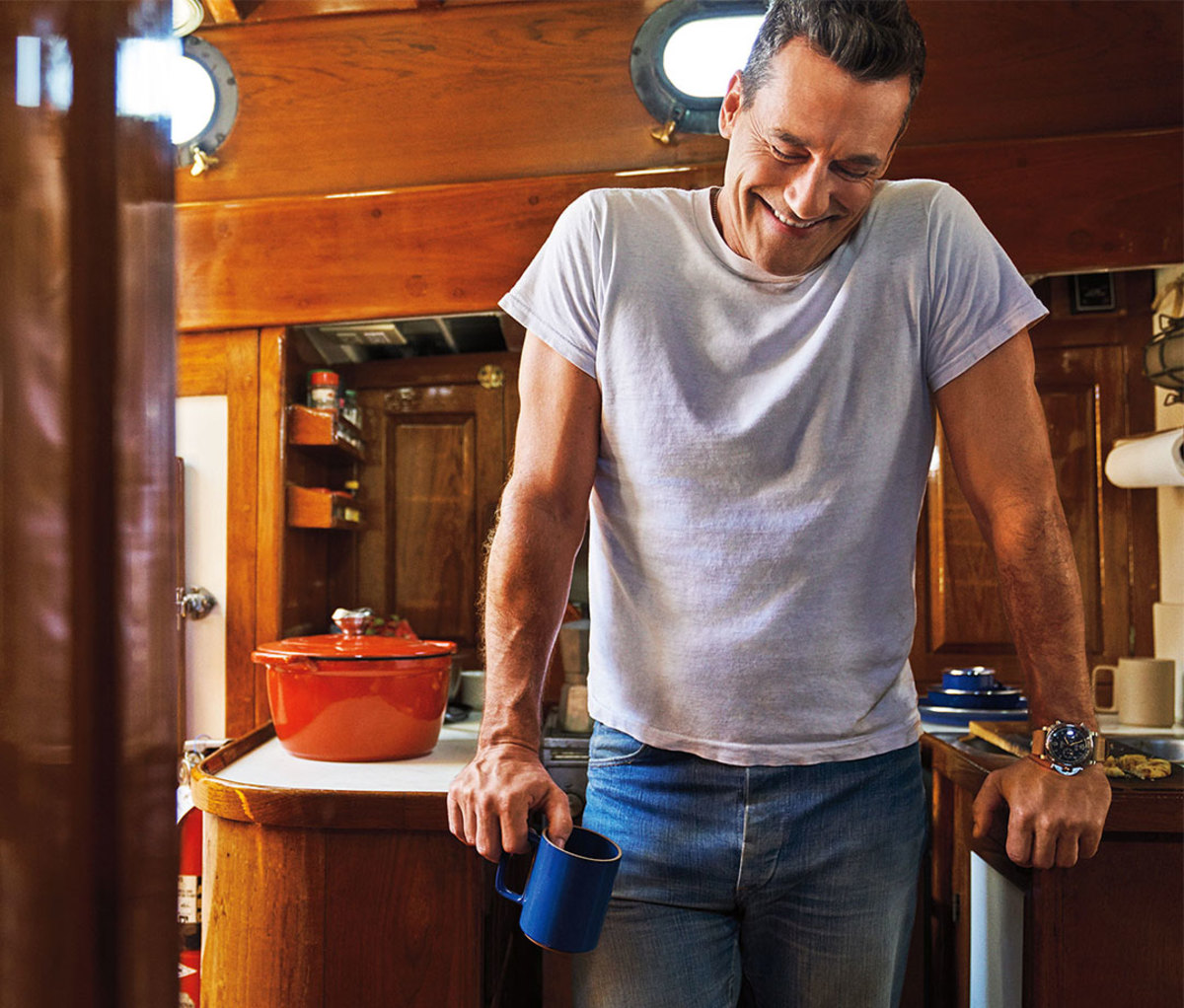
Men’s Journal: So how are you at quarantining? Is your personality set up for this?
Jon Hamm: Well, yes and no. It’s obviously been a challenge that we’ve all collectively experienced in our own particular ways. I’ve tried to focus on maintaining a sense of grace and gratitude, and tried to kind of find the good in every day. It’s been challenging. The days tend to blend. But I will say, my gym, my trainer, recently, sort of reopened, and that’s been a real plus. Not being able to work out has been a real fucking bummer. I just got back from the gym, that’s why I was a little bit late. That’s been a real game changer. I’m not the kind of guy that wakes up and does situps and pushups.
Have you picked up hobbies?
No is the official answer. I wish I could say that I learned how to play the guitar or learned Japanese. But I’ve succumbed, as I think many of us have, to inertia. I’ve been doing a lot more reading, catching up on some TV shows, and cooking a lot. But just being at home is a new thing for me. The last four or five years of my life, I’ve basically lived in hotels or Airbnbs, on set, on location. And it’s actually been kind of nice to be at home. There’s a nesting pair of hawks that live in my backyard that I check out every day. There are these three bunnies that live in my front yard. And they’re just used to me at this point.
Let’s hope they don’t meet each other.
The hawks are a daytime thing, the bunnies are an evening thing. I’m glad that they haven’t met. I don’t want to wake up and see fur in my yard.
One of the bigger events of 2020 for you would have been the premiere of Top Gun: Maverick, which has now been pushed to next summer. You were a teenager when the first one came out. What do you remember?
I was probably 15, at the dead center of the target demographic. I remember seeing the trailer and thinking, “Yes. That looks awesome.” And it was. As an adult, I’ve seen it in the interim a couple times, and you realize that [director] Tony Scott, who came out of commercials, had an incredible sense how to tell a story, visually. That movie just looked so cool. It didn’t make sense, because every shot was at sunset or sunrise. But who cares?
When you were 15, did you think of yourself as more of a Maverick or a Goose?
I was probably more of a Goose. I’m happy letting somebody else drive. I’m an integral part of the team, but not necessarily the guy at the wheel.
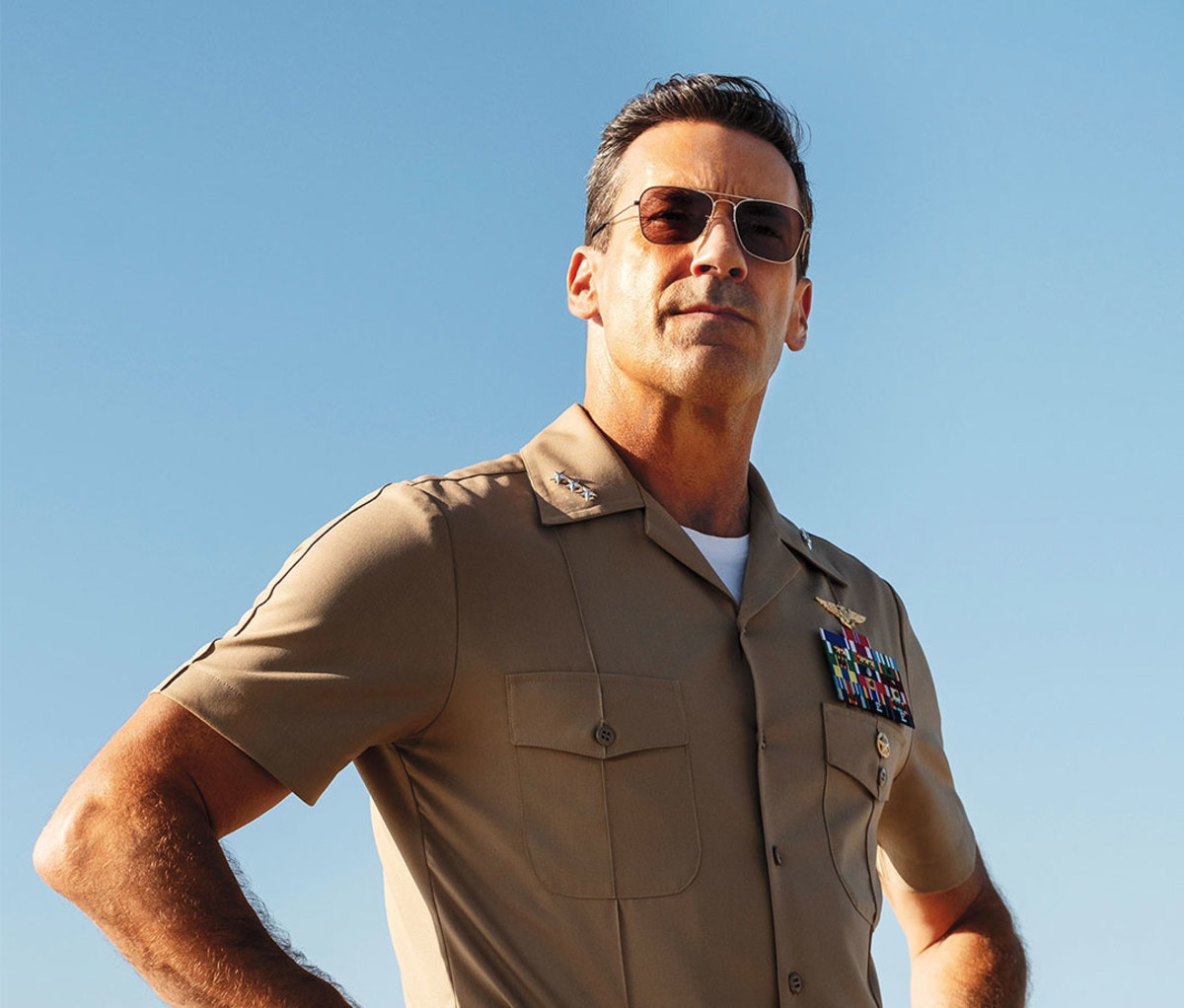
Did having Tom Cruise in the lead take some of the pressure off? Or was that intimidating?
Well, I’ll say this about Tom, he is 100 percent movie star and 100 percent a leader. On Mad Men, I learned that if the person at the top of the food chain behaves in a certain way, then that’s how the rest of the folks are going to behave. Tom’s always ready. He’s already prepared. He’s always on time. He’s got 900 things going on that you don’t even know about. But that never comes into the daily work. If there was any pressure to perform and be great, or uphold the legacy of this film, it didn’t show. You could tell that he was having the time of his life, and that enthusiasm completely washed over the rest of the cast. My first day on set, I said to Tom, “This has to be just surreal for you. Like you’re literally in the same hangar, 30 years later. In nearly the same costume. What’s that like?” And he goes, “Man, it’s unreal. How cool is this?”
What can you tell us about your character? I’ve read you’re related to Viper, but not.
Yeah, it’s sort of tangentially related. It’s not so much of a father figure, the way Viper was to Tom. He’s air boss of the fighter wing. He has a lot of authority and responsibility. When that rubs up against Maverick, there’s friction, as you would guess. I provide the friction.
Did you get up in the air?
I did not, unfortunately. I would have loved to. There’s a lot of paperwork involved when you’re stepping into an $80 million piece of hardware that’s owned by the taxpayers of the United States of America. I was not required to fly, therefore I did not get to.
Were you relieved, or bummed?
I think it was about 50/50. I did recognize the tremendous amount of preparation and work that went into it, but I was glad that I didn’t have to do it.
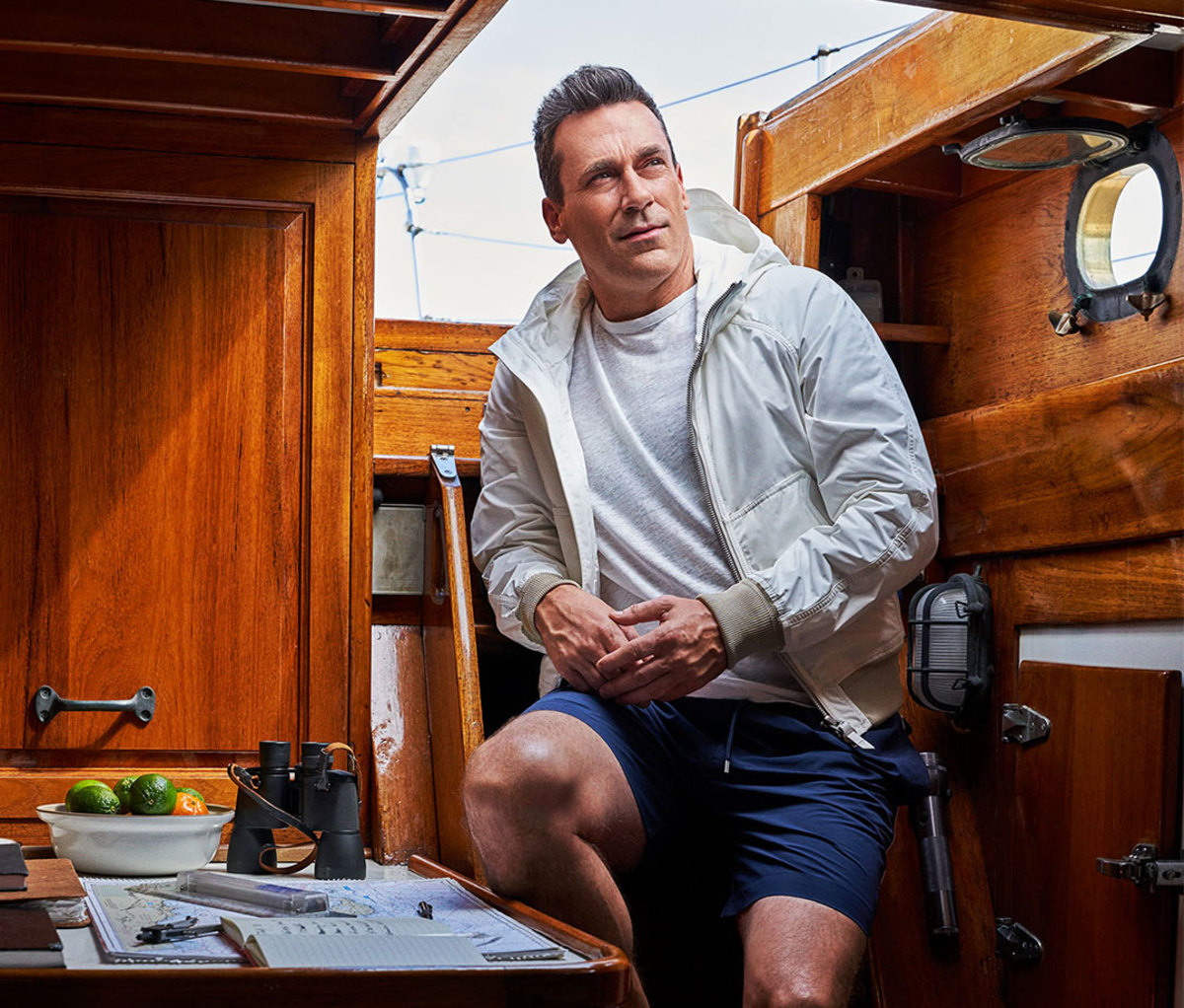
In keeping with the ‘80s theme—you just signed on for a reboot of Fletch. What made you think there’s new life to be had in that story?
Well I was a huge fan of the movie. I can literally quote it from top to bottom, because it was so funny, and again, I was dead center in that target demo. The movie inspired me to check out the 11 Gregory Mcdonald novels. Chevy had his performance and he’s so good, and physical, and funny, and it’s very specific to him in that time. We’re obviously not remaking that movie—it’s perfect. We’re just extending the story about this character, and hopefully telling a deeper, little more nuanced story about why this guy does what he does. There’s a lot of fertile ground to plow.
Has a leading comedic role been a longterm goal of yours?
Yeah. I’ve been very fortunate in my career that I have some credibility on both sides of the aisle, from a dramatic standpoint to a comedic standpoint. Making somebody laugh is difficult. “Dying is easy, comedy is hard,” they say. It’s always a challenge.
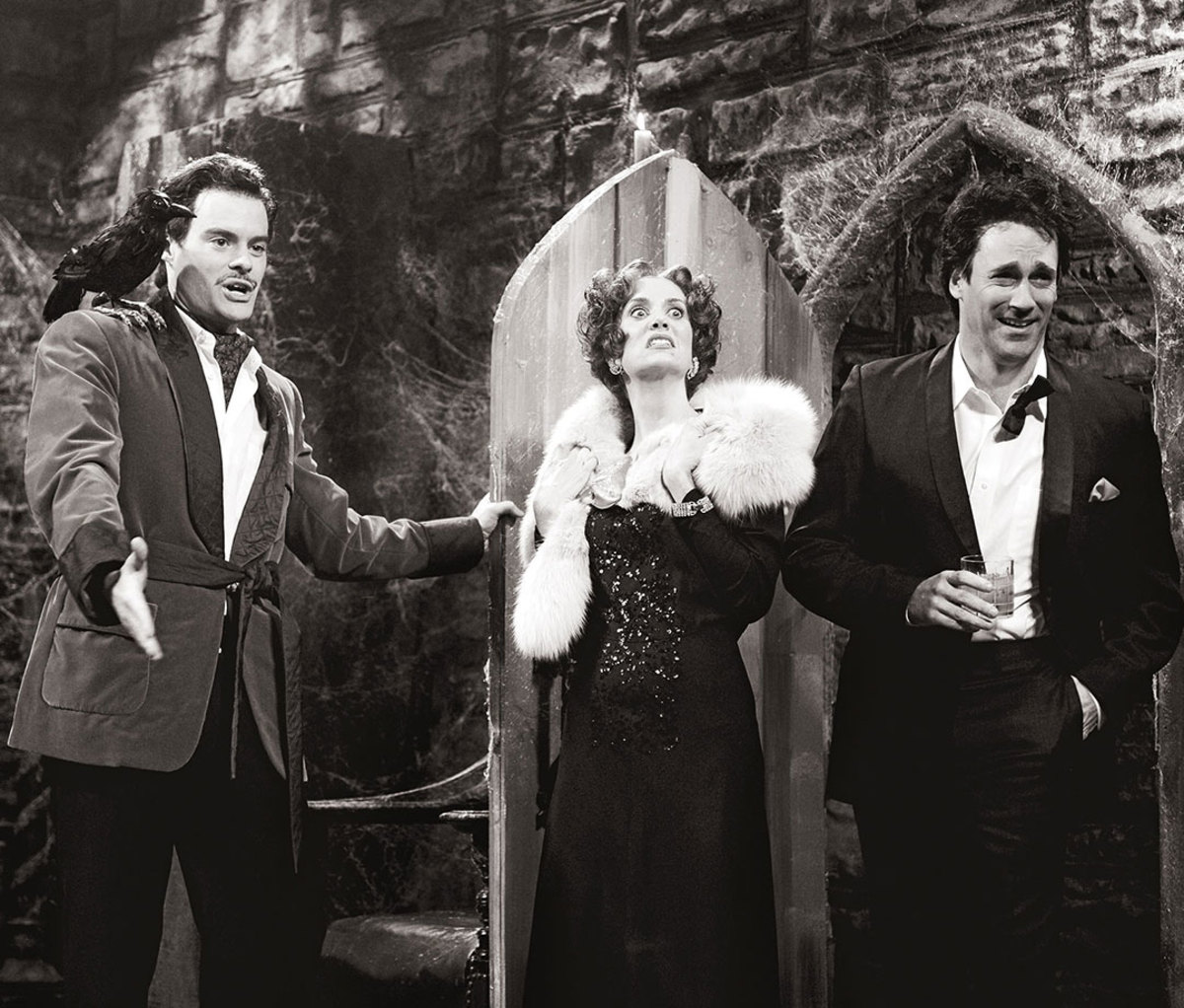
In the middle of the Mad Men run, you were starting to do Saturday Night Live, building your comedy chops. What did you learn from the SNL crew?
You realize how uniquely gifted those people are—the cast, the writing staff, the production staff, everybody. It’s like being a part of a really good baseball team. You just don’t want to be the guy that drops the ball. You also realize that nobody bats a thousand. Sometimes the sketches fall flat—it is what it is.
IT’S LIKE BEING ON A REALLY GOOD BASEBALL TEAM. YOU JUST DON’T WANT TO BE THE GUY WHO DROPS THE BALL.
What was your favorite sketch that you were in?
Oh boy, that’s a hard one. [Bill] Hader had a long-running bit on the show, where he did Vincent Price and I got to play James Mason; [Kristen] Wiig was Gloria Swanson. It was super funny. And then there was another sketch that Kristen and I did called “Darlique & Barney,” where we play these kind of weird lounge singers. It makes no sense. And then I did one with [Will] Forte for the Halloween show one year, where he came to my door as a registered sex offender. There’s just so many funny things that you just have to lean into and say, “Ugh, we’re doing this. Let’s make some people laugh and then we’ll go home and see what happens.”
It seems like you’ve moved toward comedy just as it’s becoming harder to pull off—given the state of the world, it’s very easy for a joke to inadvertently feel in very poor taste.
The pandemic and the movements that we’ve experienced this summer have made us all look at things that are challenging. There are other people who experience the world differently than you, and you have to come to some sort of understanding with that. That’s really what I’ve tried to do. Yes, it’s more difficult when you have to examine everything that you do, or say, or perform. But that’s not necessarily bad. If we’re all on the path of learning and growing, then let’s all be on the path. That way, we’re contributing not only to better versions of ourselves, but hopefully our society and our culture.
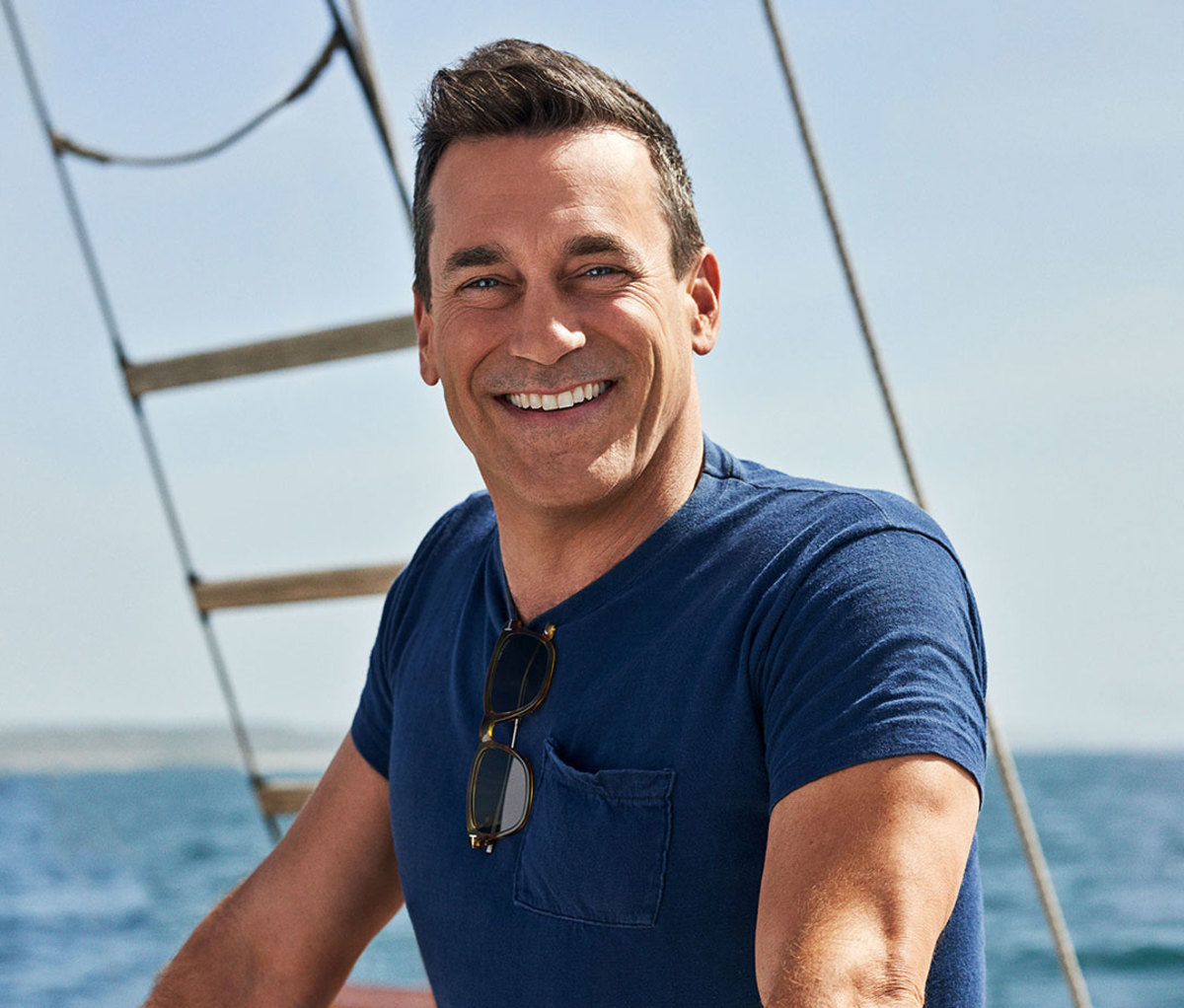
Are you proud of the way that Mad Men went out of its way to portray misogyny and racism?
Well I’ve said this before, but Mad Men is not a travelogue. It’s not meant to be, like, “Look at what happened in the ’60s.” Matthew [Weiner] did a great job of essentially writing a novel about a man and his journey—who he runs into and how he interacts with them, and how he changes. I just think it told a story very accurately about this world.
How did your ambitions shift after Mad Men became a success?
Early on I just hoped that I would someday be in something that was culturally relevant—maybe the third lead in a movie that won an Academy Award, or the lead in a really cool show. When that happened, I thought, well, I’m not going to squander it. So, I took opportunities like Bridesmaids, The Town, Tag, Keeping Up with The Joneses, Richard Jewell. I look back at everything I’ve done and I’m proud. Some haven’t made any money, but I don’t care. That’s neither here nor there. I had a blast working on them.
You recently collaborated with Ellie Kemper in Unbreakable Kimmy Schmidt. She was your drama student back in St. Louis in the early 1990s— before you had made it yourself. How did you get that gig?
Well, I went back to my high school to teach because I felt that the school’s teachers had given so much to me, but there was no way for me to endow a scholarship or anything. I was a broke college graduate. But I very much wanted to be some version of the inspiration that my teachers had provided me. And I feel like I did that, in a certain way—not because Ellie became a famous actress or what have you. The school asked me to come back for the following year. But I thought, well, if I don’t try this once, I’ll probably regret it, so I turned down the offer and I drove out to L.A.
Are you ever going to be at the front of a classroom again?
That’s a good question. I certainly wouldn’t say no. I do find it incredibly worthy. I mean there’s something to be said for looking back on that time and saying, “I got it. I got the memo, I got the note.” If [my old high school] ever asked, yeah, I’d come back and teach a semester or something. Just not math.
I’M PROBABLY MORE OF A GOOSE. I’M HAPPY LETTING SOMEBODY ELSE DRIVE.
You’ve been open about your embrace of therapy and proactively dealing with mental health. Has it informed your acting at all?
As an actor, you have to be aware of your emotions and where you are in the course of a day or in the course of your life. And you have to be able to let that inform whatever character you’re playing. I think keeping that side of your mind/body duality sharp is the same thing as keeping your physical side sharp. There’s a weird stigma about mental health, and there doesn’t need to be. Staying aware of where you are in that spectrum just makes good sense.
Are you still playing baseball?
Well, the pandemic had a little something to do with this season. No is the short answer. But I’m having fun watching it.
Are you big on tradition—an ‘unwritten rules’ guy?
Unwritten rules are stupid. If they’re rules, they should be written down. If they’re not, who cares? That’s my hot take.
Your team has no unwritten rules, then?
No. Our team is called The California Love. We play in a wood bat league in Beverly Hills, and take an easy approach. If you strike out, if you get a hit, if you make an error—who cares, man? It’s more about the hang. The baseball is secondary to meeting up and telling stories.
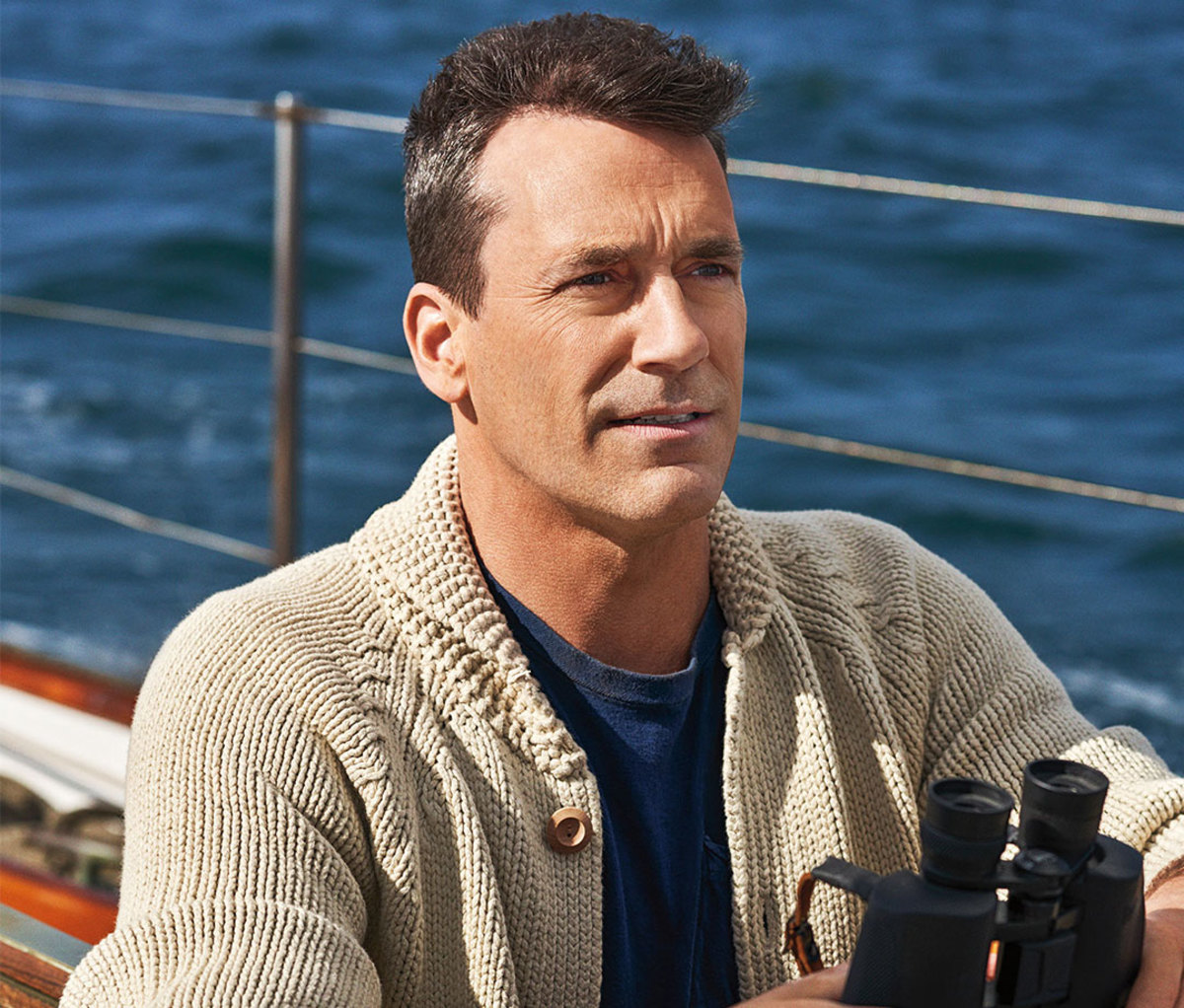
You’re a huge fan of your hometown St. Louis teams. If you were forced to delete one of these memories, which one would you lose: the 2011 Cardinals World Series run or the 2019 Blues Stanley Cup run?
That’s a tough one. I don’t think I would be able to lose the Stanley Cup. It’s too unique, that whole experience, worst to first. I was right there with it. I had a couple pals on the team. I got to lift the Cup. If I lost the memory of the 2011 World Series, I’d still have a couple other Cardinal baseball memories that I could rely on—1982 and a couple others.
So, what’s next?
I’m off to Detroit next month—fingers crossed—to shoot with Steven Soderbergh. It’s a phenomenal script written by Ed Solomon called No Sudden Move. It takes place in the auto industry. It’s me and Don Cheadle and a bunch of awesome people. I’m stoked. I’ve known Steven for years, but I’ve never got to work for him.
I can imagine that at this point you’d be willing to leave your house for far less.
For sure. It’s been a minute.
from Men's Journal https://ift.tt/3oC37yy










No comments:
Post a Comment